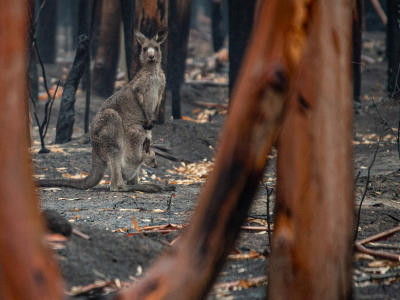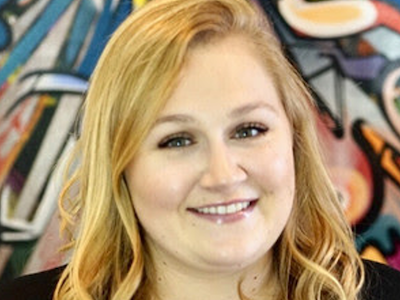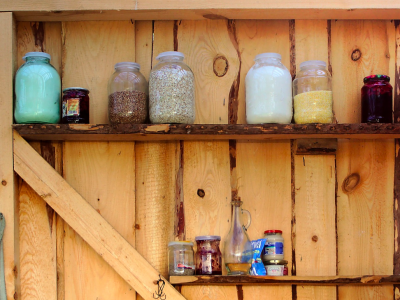Jacqueline Keena is a graduate of the MPNL program and the Managing Director of Enterprise Machine Intelligence & Learning Initiative (EMILI), an organization working with industry and academia to accelerate the adoption of intelligent technologies in agriculture and to provide people with the skills and training required in a digital economy. This PANL Perspectives interview by Sherlyn Assam has been edited for length and clarity.
 What drew you to the agrifood industry, and how long have you been involved?
What drew you to the agrifood industry, and how long have you been involved?
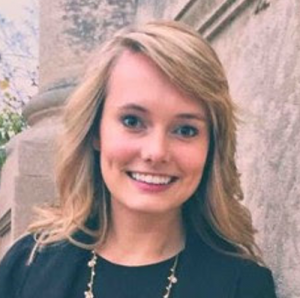 Keena: I was born and raised in Manitoba, so this interest in agriculture and in Canada as a global leader in agriculture and food was always present. What drew me to the industry is the role of the agriculture industry to drive economic opportunity for Canadians.
Keena: I was born and raised in Manitoba, so this interest in agriculture and in Canada as a global leader in agriculture and food was always present. What drew me to the industry is the role of the agriculture industry to drive economic opportunity for Canadians.
 Is there anything that surprised you about the agricultural landscape, now that you work behind the scenes?
Is there anything that surprised you about the agricultural landscape, now that you work behind the scenes?
Keena: As an undergrad, I learned about how nuanced the industry was, and about how much technology, financial expertise and insight were required to make the decisions involved in food production, processing and marketing. But the depth of it did surprise me. There’s so much behind the scenes, compared to what the average Canadian sees when driving down the highway in the summer.
This is similar to my experience in the MPNL program, as I wasn’t aware of the breadth and depth of expertise and research required in the nonprofit sector. The program exposed me to resources for the sector, research on sector needs and government mandates, and to future needs related to funder objectives and giving trends. The nonprofit and charitable sector in Canada makes up 8.1 percent of our national GDP and employs almost 10 percent of our labour force; it’s an important area for Canadians and our economy.
 How does changing landscapes and political wills affect EMILI, the different organizations it partners with, and your leadership?
How does changing landscapes and political wills affect EMILI, the different organizations it partners with, and your leadership?
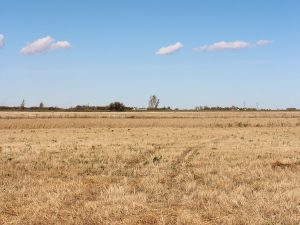 Keena: There’s an ever-changing landscape, whether it’s government objectives or mandates, or other funders and grantors. Staying aligned with objectives and going through fundraising processes, while staying true to EMILI’s vision and mandate, can be a bit of a maze to navigate. Part of that challenge is keeping up with how things are changing, being able to communicate effectively about what EMILI is doing well, and why it matters to the people we work with. There’s a need to stay nimble. We have to be strategic and show value and alignment in the present and keep an eye on our long-term vision and how we can work to realize it.
Keena: There’s an ever-changing landscape, whether it’s government objectives or mandates, or other funders and grantors. Staying aligned with objectives and going through fundraising processes, while staying true to EMILI’s vision and mandate, can be a bit of a maze to navigate. Part of that challenge is keeping up with how things are changing, being able to communicate effectively about what EMILI is doing well, and why it matters to the people we work with. There’s a need to stay nimble. We have to be strategic and show value and alignment in the present and keep an eye on our long-term vision and how we can work to realize it.
 Where would you say EMILI will be in the next five to 10 years, after goals shifted with the pandemic?
Where would you say EMILI will be in the next five to 10 years, after goals shifted with the pandemic?
Keena: Well, the pandemic accelerated transformations, some of which would have happened over one year, instead of all at once. The pandemic has allowed us to reach more people in more places and raise the profile of digital agriculture innovators in the Prairies. We adjusted to a virtual environment for our conferences, during which we increase awareness about agricultural opportunities and technological innovations.
EMILI mostly works in Manitoba and with partners across the Prairies to expand the digital agricultural ecosystem. We’re going to keep building on this work — and scale elements of our work across Canada.
 How do you think the MPNL program contributed to the way you work as a professional in the nonprofit sector?
How do you think the MPNL program contributed to the way you work as a professional in the nonprofit sector?
 Keena: I loved my experience at Carleton University, an incredible learning institution. Because of its long history, its geographic location in our capital city, and its world-class scholars, Carleton is an incredible place to learn from world-class experts, hear from global leaders and experience the connectedness of Ottawa. I had the opportunity to learn from leading researchers who I’d previously read the work of, like Dr. Susan Phillips and Dr. Callum Carmichael. We also heard from industry leaders who taught us based on their lifetimes of experience. There were many speakers who applied the theory we were learning.
Keena: I loved my experience at Carleton University, an incredible learning institution. Because of its long history, its geographic location in our capital city, and its world-class scholars, Carleton is an incredible place to learn from world-class experts, hear from global leaders and experience the connectedness of Ottawa. I had the opportunity to learn from leading researchers who I’d previously read the work of, like Dr. Susan Phillips and Dr. Callum Carmichael. We also heard from industry leaders who taught us based on their lifetimes of experience. There were many speakers who applied the theory we were learning.
Carleton broadened my perspective about what’s possible and available in the nonprofit sector. Now, I know people who I went to school with who work in diverse sectors, but we have similar challenges, because we’re under the banner of “nonprofit.” We can learn from people who are either more advanced in dealing with an issue or have had success in addressing it — or maybe have tried something that wasn’t very successful and can help us to avoid a misstep. That has been extremely valuable, and I’m sure it will continue as everyone advances in their respective areas. I didn’t know how transformational my experience at Carleton was going to be when I started the program. I’m so grateful for the program, what I learned, how I was taught and the fellow students who I met along the way.
Jacqueline Keena is on LinkedIn. Sherlyn Assam is on LinkedIn and Twitter. Photo of Manitoba farm is courtesy of Pete McBride.
